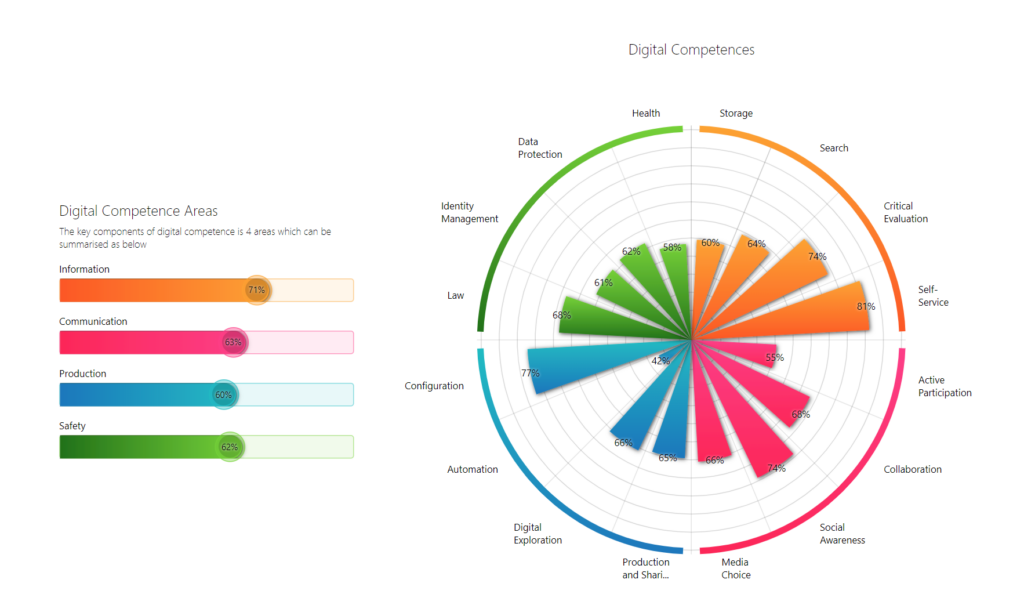KELA In My Life
KELA (The Social Insurance Institution of Finland) is an agency settling benefits under national social security programs. The money for the benefits is collected from the tax payers.
The benefits my family nowadays gets from KELA are Child benefits. We have three children which are all eligible for the benefit. It is a quite rare benefit in the way that it is not income-related. It is money everyone can and should invest on their children to fill their needs (food, clothes etc). KELA also provides reimbursements for the costs of medicinal products for example. We are lucky at the moment because we don’t need them too much, but some of the medicine are so expensive that we’re lucky to have such a system for everyone living in Finland.
KELA is there for everyone and supports you in every different life situation. There are so many different kinds of benefits and therefore you need to be aware of them first to be able to apply! So guidance is needed and we need to help each other to tell about the options, because in many cases the people who need benefits and help are already in more vulnerable situation than others.
European Health Insurance Card
Have you ever thought, what would happen if you would urgently get ill abroad? You should. I have had a European health insurance card in my wallet for at least ten years. I haven’t actually ever needed it, but it’s free and ensures you the necessary medical treatment in EU or EEA countries, in Switzerland, Great Britain and in Northern Ireland. With that card you should get the same level of treatment as the locals do and the cost will get paid by the KELA.
The card is valid only for two years, but the good thing is that they send the new one totally automatically!
I warmly recommend everyone to get one here.
MyKanta (OmaKanta)
OmaKanta is an online service to provide access to your health data. Both the public and private health care data is stored in the same place. To be able to log in, you need a Finnish personal identity code (HETU) and means of identification (banking codes, a mobile certificate or electronic ID).
Have you actually explored what all you can find in OmaKanta?
I log in there by using online bank codes and to be precise, with the mobile key. Very easily accessible service!
ELO
According to the Pension insurance company ELO the busiest time of my life (pention) begins in the summer of 2045. That would be the lowest estimated pensionable age, but I’m confident that governments still to come have a lot of plans to keep me less busy for a little bit longer. My pention at the moment seems to be 2 798 € per month and by keeping it slow for a couple of years more, the amount of pention would rise up to 3 210 € per month. Quite tempting? Maybe, but I think I still would choose my busy life. If you would unlock the ultimate challenge and work until 70, the pention would be 3 531 €. No thanks, I think. At least now.
Digital Accommodation Shopping
When we travelled more, like doing family road trips to Lapland and Norway for example, I used Booking.com app or website to find the accommodation. I’m not sure if the accommodation prices were any cheaper, but when travelling and changing locations frequently, I needed and appreciated the big selection and easy booking.
Once there was an unpleasant event of double booking. According to the hotel receptionist, I had managed to book the same (and last) family room by Booking.com as the Russian family did. Even if I had made my reservation many weeks earlier. I really had my doubts, because we only needed to stay one night and who knows if the other family was a lot more profitable choice. That was the only hotel in village and I probably wasn’t the happiest customer to get that phone call when already approaching the town. With hungry and crying children in the back seat. Well, they managed to get us two different smaller hotel rooms with “some kinds of arrangements”, but still wanted to have compensation. Actually it felt like getting robbed, but we had no option. “It happens with Booking.com” said the receptionist.
Since then I have booked my accommodations by calling or emailing the hotel. I also didn’t like the Booking.com way of spamming too much “super offers”. Actually you could usually book the accommodation cheaper and and notice, with better cancellation conditions by straightly contacting the hotel. In some cases there was no chance of cancelling the accommodation without paying at all! One of the biggest hotel chains even advertised, that you’d always get the cheapest price by contacting the hotel, I think?
A Digital Service For Traffic Network Professionals
One of the newest online open data services I almost daily use, is “Suomen Väylät“. It is a map service provided by the Finnish Traffic Infrastructure Agency FTIA. It contains an enormous amount of state-owned network data on roads, rails and waterways. The service is available in Finnish, Swedish and English. Besides viewing, you can also download the data from different file formats like .shp, .csv or .json for example. We use it as a source of initial data for designing railway signalling.
As a professional user I think this service is really good when comparing it to its numerous predecessors. There’s always something hopefully to get fixed, but I’m happy with it. The only real annoyance is that the service sometimes provides contradictory data, because there still are different databases containing the same data. Also I would appreciate support for more file formats (like .dwg) and coordinate transformations. And better and more precise search options. Yes, then I would be very pleased.
Can you find, which is the name of your nearest level crossing and how dangerous it is (onnettomuusluokka 0-7)? There are for example “Google Street View” links to the location (if available) ja the newest site photos taken by the railway maintenance.
(HINT: Activate layer “Level Crossing Service” and click on the wanted icon)
There are lots of data if you’re interested in traffic networks. I recommend!
Digital Gap
Not everyone is delighted with the digitalisation. Being able to use the digital services equally should be a civil right. But it’s not. You can claim that everyone has an equal chance to get on the digi train, but there is a good chance to miss the train, too. Not everyone can find their way even to the station. There are a lot of old and lonely people without any IT know-how. With no-one to teach or even help with buying the devices needed. At the same time, the face-to-face services are reduced and even closed permanently. Or you have to pay for getting old fashion personal real-life service. The inflation has already struck hard to the poorest people and they shouldn’t pay any extra for the service they need. In fact, the decrease in purchasing power can mean that you can’t even afford the devices, that need to be renewed in every two or three years.
You should be able to:
- know about the services
- know about the hardware
- know about the software
- afford them
- know how to fix them
- know how to use them SAFELY
Easy? Not always even for more dedicated users and impossible for people having no-one to help with it. How frightening do you think the digital world would seem to you if you would not have the knowledge? Especially when you get warnings of phishing and news of breaches almost all the time. It’s all too easy to click on the wrong link and give your bank account codes to the criminals. I almost did that once when I was clicking my phone while sitting in a very long online meeting.
If you’ re forced to use digital services, you should then also get or even be forced to the familiarization. There are for example institutions helping older people to get familiar with digital services, but you should offer them to everyone. Not that you should find them all by yourself first and pay for it. Maybe there should be some kind of a legislation ensuring everyone get sufficient digital skills?
What do you think?

My Digital Competence Test Results

Self Evaluation
I consider myself as a quite decent digi citizen. My Digital Competence test gave me a result of intermediate user. I still feel I have no big obstacles using digital services, but I only avoid using popular social media like Facebook, Twitter, X, Instagram etc. It might seem odd, but that has been my decision always. I don’t think I had even time for them either. I use always the digital services when they are available and often find myself getting somewhat annoyed if there’s not one. I like doing things easily and especially when I have time for it.
There still are some things I like to do in an old school way. I like to buy some certain things from brick-and-mortar shops. If they exist anymore. I have had so many good experiences that I still want to support them. You seldom get such a good familiarization to the product when you buy it online and wait it for a week, get it from the post office and finally save your 10 €. It is also easier to walk physically in the shop to complain if there’s something to complain or ask about the product. I like personal service and I’m also ready to pay a little for it. I have to say that some of my best experiences as a customer have happened in a small town special shops. They need to stand out in a crowd with good service or they don’t exist any more. Often I feel very sad seeing good special shops getting closed permanently.
These assignments also made me think, that it is also quite easy to miss the digi train. The train is moving too fast for some of us and we get rid of the old and familiar ways all too soon. Digi leaps aim also for reducing cost of the service provider. That’s why. Not only making our lives easier. We should pay a lot more attention to helping everyone get digitalised, at least to the minimum level needed or actually, required.
My Comments On The Blogs Of Other Users
Juha’s site by Juha Hiltunen:https://blogi.savonia.fi/juhahiltunen/esimerkkisivu/#comment-3
Laura’s site by Laura Sauranen: https://blogi.savonia.fi/sauranenlaura/digi-society/#comment-3
AnuMaria’s site by Anu Leppänen https://blogi.savonia.fi/anuleppanen/digi-citizen/#comment-2

One thought on “Digi Citizen”
Hey Juha! Thank you for your comments. Your page is really well done; I can immediately see that digitalization is not a problem for you, as you mentioned yourself. Your thoughts on retirement are diverse and interesting; many are likely pondering whether to continue working longer for a better pension. Your reflections on skill gaps regarding digitalization are good. It is true that, for example, older people have fallen behind in this development. It’s nice to hear that you also support brick-and-mortar stores.